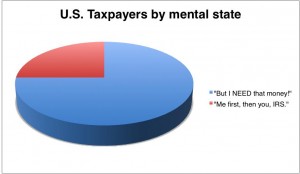Skirts and malleable men, this one’s directed at you. Spending money on a wedding is one of the surest, most effective ways of getting your financial life off to a treacherous footing. The average American wedding costs $30,000 from ring to honeymoon. And despite their effervescent exteriors, wedding planners are among the most opportunistic agents in all of commerce. They know that you’re the best kind of customers there are – people who are too terrified to concern themselves with budget, for fear of looking cheap. Especially in the eyes of their betrothed.
If you’re young, and getting married at the traditional age, then you don’t have any net worth to speak of yet. Or at least, you don’t have so great a net worth that you can afford to “invest” some of your valuable assets in a ceremony that doesn’t pay any returns. And if this isn’t your first wedding, act your age. You already had your shot at glamor and pageantry. Treat this wedding like the requisite business transaction it is.
A wedding is not only a perpetual spring tradition, it’s an obscene commitment of time and money, in exchange for breadmakers and fondue sets you will never, ever use. You’ll also get photographs that there’s a 34% chance you’ll end up ceremoniously ripping in half within a few years. If we told you that your $30,000 car had a 3-in-1 chance of getting clobbered by an asteroid (Note: insurance policy does not cover acts of asteroid), would you buy it?
There’s another argument we haven’t demolished yet, the microtine one. Your best friend from college invited you to her wedding, and she had jugglers and dancing bears. Elton John sang and played the piano, and the entrée was fricasseed Yangtze River dolphin, swimming in a reduction of alba truffles and Château Mouton Rothschild sauce. Every guest got a gift bag with a Krugerrand inside.
If you take your friend’s lavish wedding as the benchmark that your wedding needs to meet or exceed, then welcome. You clearly made it to ControlYourCash.com by mistake. Stick around for a while, maybe you’ll learn something. Although it’s going to require more than a little deprogramming.
Here are two appropriate ways to get married – the first if you’re religious, the second, if you’re secular.
Go to your parish priest, minister, rabbi, or local fat woman who could never meet men and calls herself a witch. Then rent out the church on a Saturday/synagogue on a Tuesday/coven during the daytime. Ask the celebrant what the going rate is, then give an extra 10% in recognition of all the money you’re saving by not getting married in the conventional and dimwitted way. (Of course, you’ll be paying with cash or a check.) Invite as few friends and family as you can get away with to the ceremony. Here’s an unquestionable truth – with the exception of your mother, no one wants to be sitting there anyway, in uncomfortable clothes on a perfectly good day when they could be out enjoying life. It’s a social obligation all around, so don’t you owe it to everyone to at least make the event as painless as possible?
If you absolutely need to celebrate with friends, meet at a local bar and convive. Rent out a nearby yacht club if you still can’t convince yourself that you need to spend some amount of unnecessary money in order to properly embark upon married life, which is going to be enough of a struggle as it is. Yes, your adorable niece can still be a flower girl. Let her parents buy her dress, though.
For females, if you feel that having a modest wedding is denying yourself some ritual of womanhood, shake yourself. Most rituals of womanhood are overrated anyway. Care to relive the first time you wore heels? How about menarche?
You know what? Go ahead and splurge on the honeymoon if you want. Seriously. You’re going to bitch about how Spartan the wedding was anyway, so at least this way you can justify your innate need for self-indulgence.
If you’re not religious, find a justice of the peace or a nondenominational minister who does house calls. Hold the ceremony at someone’s parents’ house. If you want, put the bride’s most pathetic friend in charge of ordering flowers (2 dozen, no more) and calling a caterer (two entrees, max, and not salmon.) Said friend probably has lots of free time on her hands anyway, so you might as well put it to use.
Princess Beatrice and Joey Buss can be as ostentatious as they want and charge it to their parents’ credit cards. For the rest of us, a wedding isn’t meant to be a display of our family’s legacy. It’s a financial liability, however obligatory, to minimize the impact of. Freeing up important resources for you to buy assets with.





